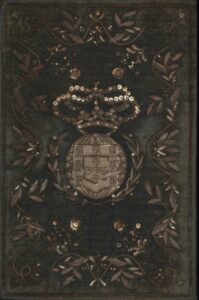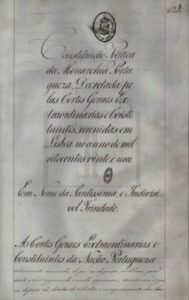As one of the major parts of the European Digital Treasures project, the Archival Literacy Online Course has been developed to assist teachers in introducing students of grade 9 and higher to the world of archives.
One of the teachers who has been using this tool in her teaching is Teresa Gomes, History teacher at Mem Martins Secondary School in Portugal. In an online presentation of the Archival Literacy Online Course on May 6, 2021, she will give insights into the course together with other lecturers. To join this event, please register here.
Teresa Gomes is the author of the following text.
Project “Digital Treasures”
This text aims to be not only a reflection on the pedagogical component of the training performed, but also on the social and informational functions associated with the archives, for the role they play in keeping the memory of the different communities and individuals.

The preservation of memory, throughout history, has been possible through the multiplicity of testimonies that allow the reconstitution of the timeline for the succession of events. The act of preserving the record of these actions constitutes the original basis of the archives which, by subjecting the documents to archival procedures, have allowed access to information through their reuse.
As mentioned in the document Aprendizagens Essenciais for the discipline of History A, must have a teaching that encourages in students a method that values the exhaustive analysis of diverse sources promotes the development of a critical perspective, enabling the deconstruction of information, identifying error and illusion (2018:2), which attributes to pedagogical tools such as those presented during “Digital Treasures” formation a particular highlight in the analysis of primary sources.

An example of the partnership between the Archive and the School was promoted through two initiatives that counted with the collaboration of the Arquivo Municipal de Sintra (AMS) and the School Library of the Mem Martins Secondary School (BE ESMM): An exhibition of the existing AMS documents, with particular emphasis on written and iconographic documents about the localities Algueirão-Mem Martins and Rio de Mouro, given that the educational community is located in these places.
During the fortnight in which the exhibition was in the BE ESMM, a lecture was held with the head of the AMS on the dematerialisation of and accessibility to documents, using digital media. During the lecture, it was shown how to navigate through different types of documents related to local and regional history was performed.
Later, in the classroom, the students worked on the website of the Assembly of the Republic and National Archive of Torre do Tombo/Digitarq to read and analyse documentation relating to the Liberal Revolution of 1820 and the Civil War between Liberals and Absolutists, as well as the involvement of the municipality of Sintra in both events.
For the knowledge of the historical context under study, the students are thus led to the reading and analysis of coeval written production as well as to the observation of records of images of the time or that in histography allow the identification of elements that promote the hermeneutic and heuristic analysis of the sources, namely in the subject of History A, in secondary education.
